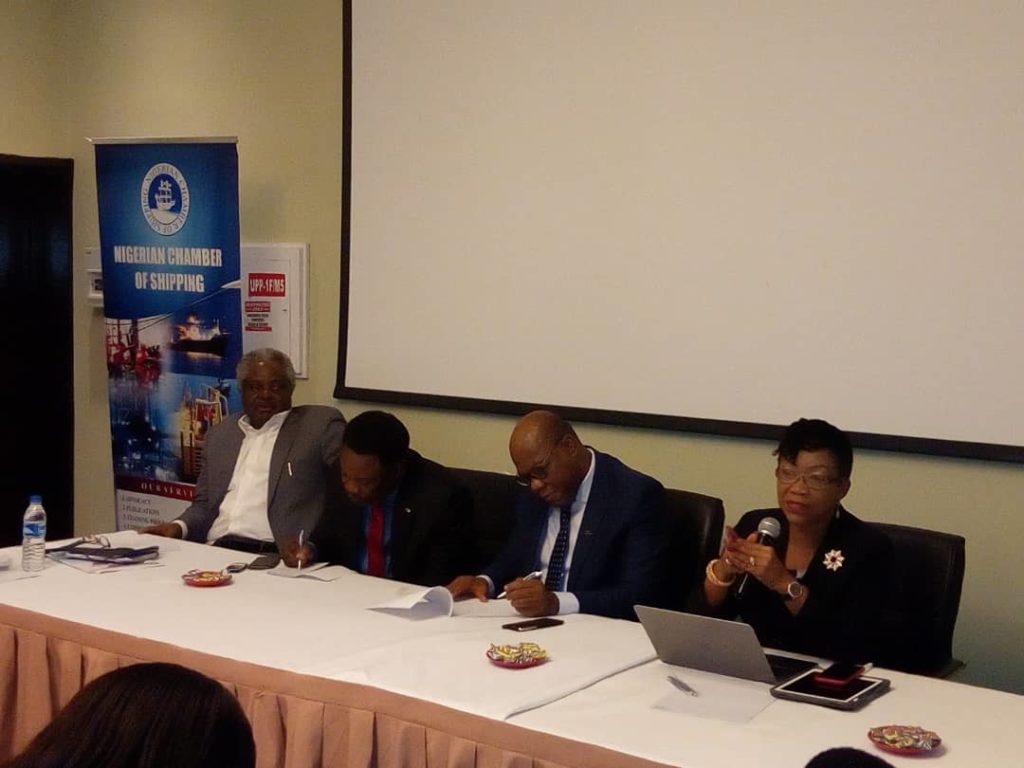Stakeholders in the shipping sector have stressed on the need for a comprehensive shipping policy implementation in Nigeria.
This is part of the communiqué issued at the end of a Focus Group Meeting organized in Lagos last week by the Nigerian Chamber of Shipping with the theme, “Nigeria Shipping Policy: A Catalyst for Maritime Growth”.
They identified the need for a timeline that recognizes the ship development life cycle namely- operations, maintenance, building and financing adding that policy integration was important.
“We do not need big committees; committee with a few highly specialized persons can address and tackle issues on a piecemeal basis. Areas such as customs, synergy on manpower development on ship trawlers to the major ships, and the different segments of the shipping industry can be looked into. This should be done from the perspective of shipping being a major part of the transport sector”.
The stakeholders noted that there were enough policies and laws and that what was needed was more private sector involvement and investment even as they emphasized the needs to have a nationalistic mindset in creating a business case for investment in the Nigerian maritime sector.
The pointed out that oil and gas exploration particularly offshore exploration could become the basis for development of seafarers in Nigeria as this could enable Nigeria become an export market for seafaring professionals even as they noted that the IOCs would be willing to outsource their manning aspect of their ships and finance the training of seafarers as it would help reduce their tax exposure adding that “this is where Nigeria can take the advantage of developing its manpower in the shipping industry”.
“There is a need for capacity building for the trainers of those operating in shipping particularly at the university and the polytechnics and to develop the syllabus of tertiary institutions. This will assist in making man power in the shipping industry internationally competitive. Schools outside the country can be brought into Nigeria to partner on the training of seafarers.
“Ship owners should procure fleet and come up with a depreciation policy that will allow them to liquidate these ships in good time. This way such companies can remain competitive and ensure that they continue to be a going concern.
“Optimization of policy implementation should drive Nigeria’s shipping policy.
“There should be policy design teams that involve financiers, ship owners, young practitioners in all the maritime sectors, engineers and surveyors amongst others that make the critical mass needed to have a position paper. This can then be presented to the public sector and the relevant agencies to drive policy implementation in that direction.
“The Cabotage Vessel Financing Fund (CVFF) can be used as guarantee to help in financing ship building to assist in balancing the risks in ship finance. Insurance can be handled in Nigeria and build expertise in this field”.
The stakeholders however identified the following implementation guidelines; Immediate and quick wins, time frame and responsible institutions, short term measures, long term measures and feedback mechanism to keep a loop on the implementation.
Send your news, press releases/articles to augustinenwadinamuo@yahoo.com. Also, follow us on Twitter @ptreporters and on Facebook on facebook.com/primetimereporters or call the editor on 07030661526, 08053908817.

